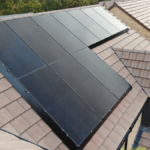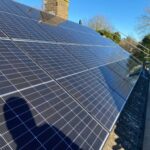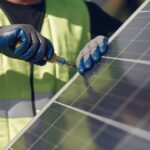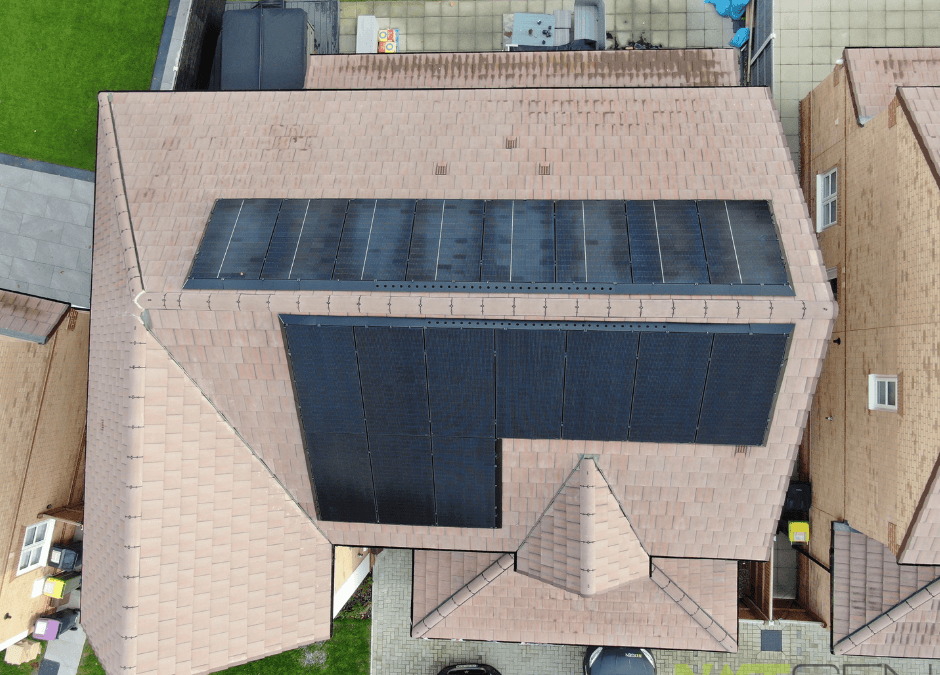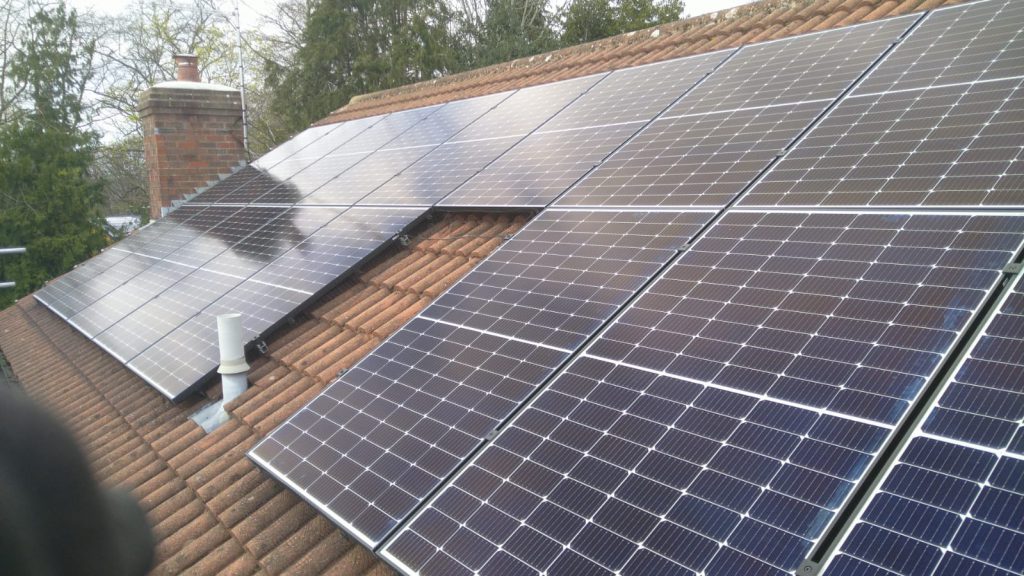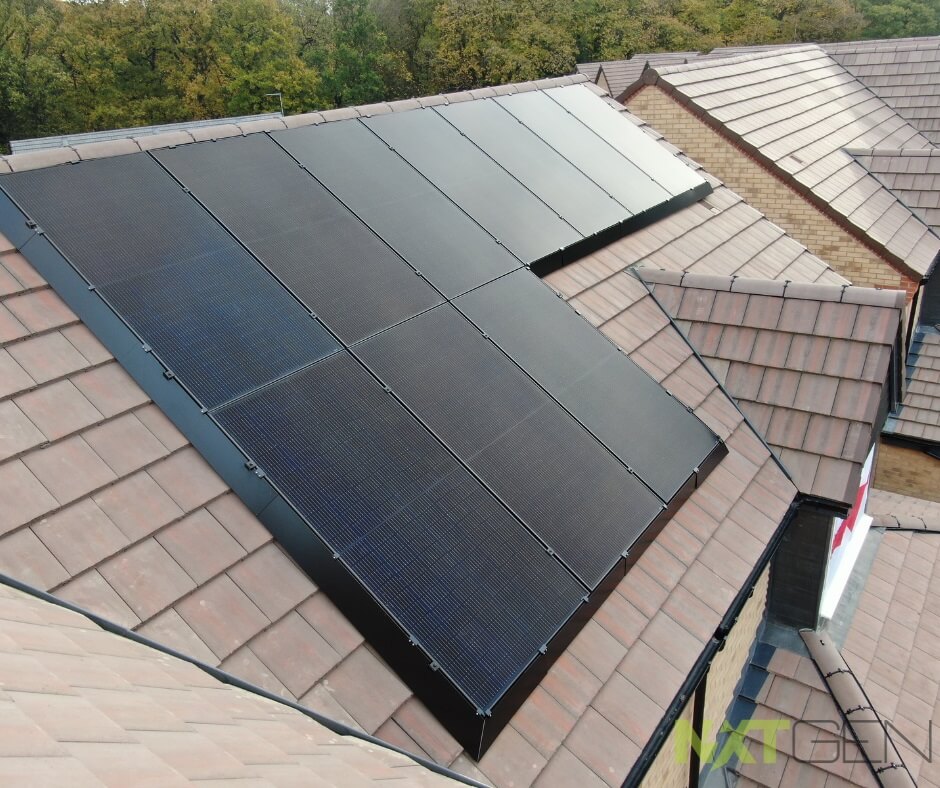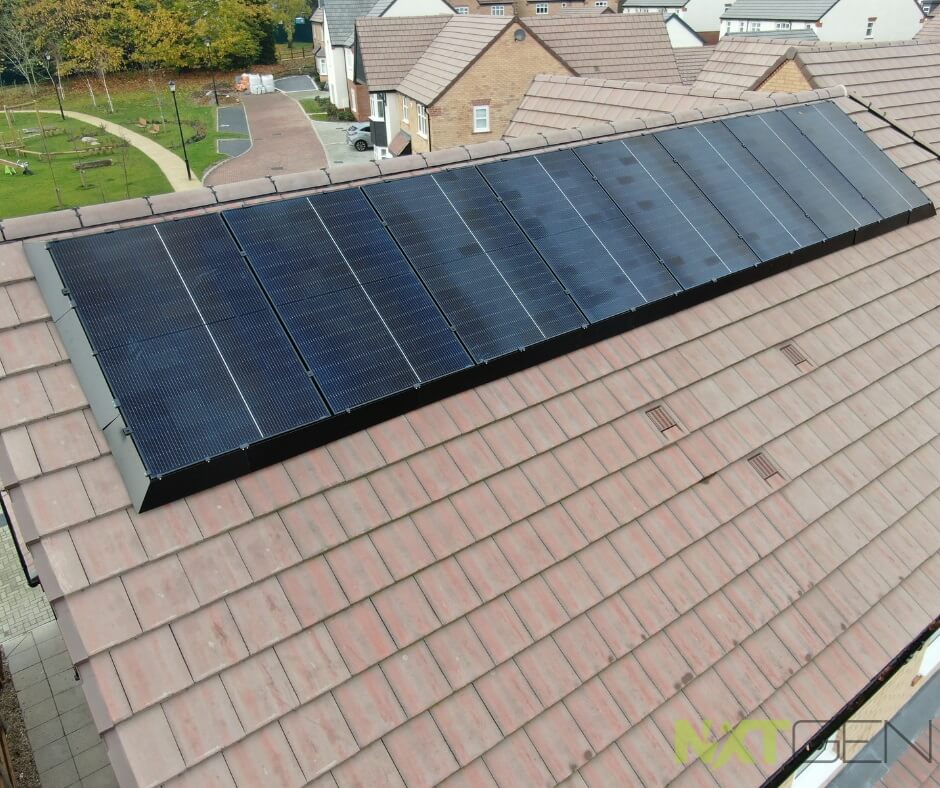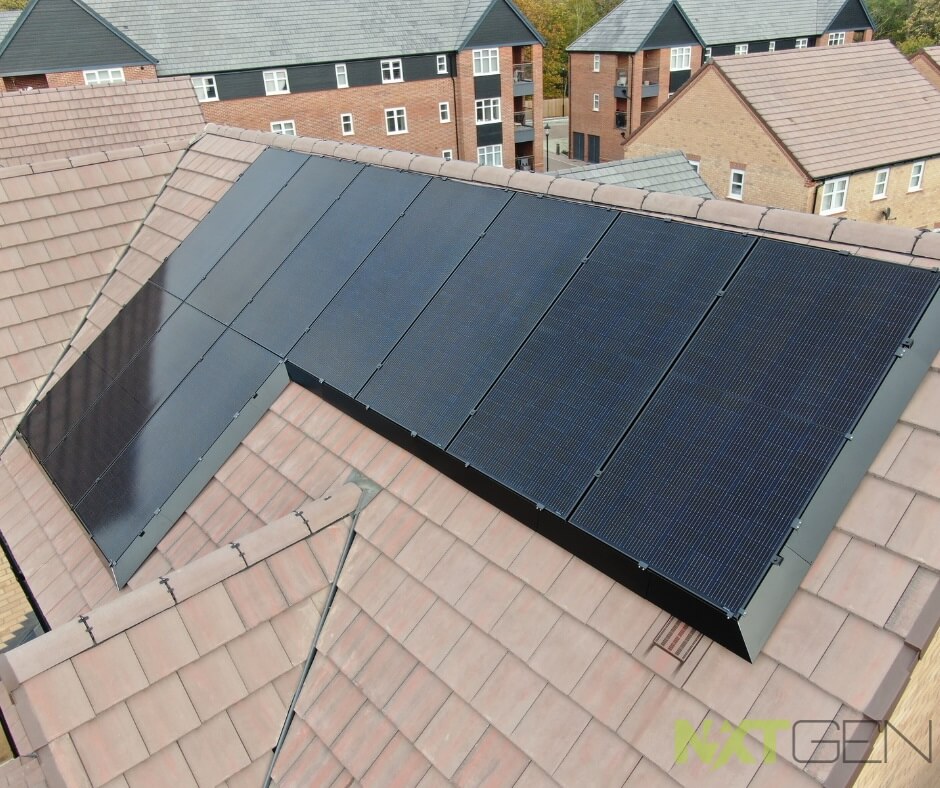


How Solar Panels and Mortgages Can Work Together to Save You Money and the Planet
Renewable energy sources like solar are becoming more and more popular each year and they are now more affordable and accessible than ever before, and solar power is one of the best choices for homeowners who want to reduce their energy bills, reduce their carbon footprint and help the planet by moving over to clean, green, sustainable energy production in the UK.
With mortgage rates continuing to rise with the Bank of England interest rates and with fixed-rate mortgage deals ending, if you have a mortgage your bills will be increasing again, especially if you have a variable rate mortgage. You can save money to pay your higher mortgage costs by reducing your energy bills and you can reduce your energy bills by installing a solar panel system on your roof or in your garden.
But how do solar panels affect your mortgage, and what are the benefits and challenges of installing them on your home? In this article, we will answer these questions and more, so you can make an informed decision about going solar if you have a mortgage.
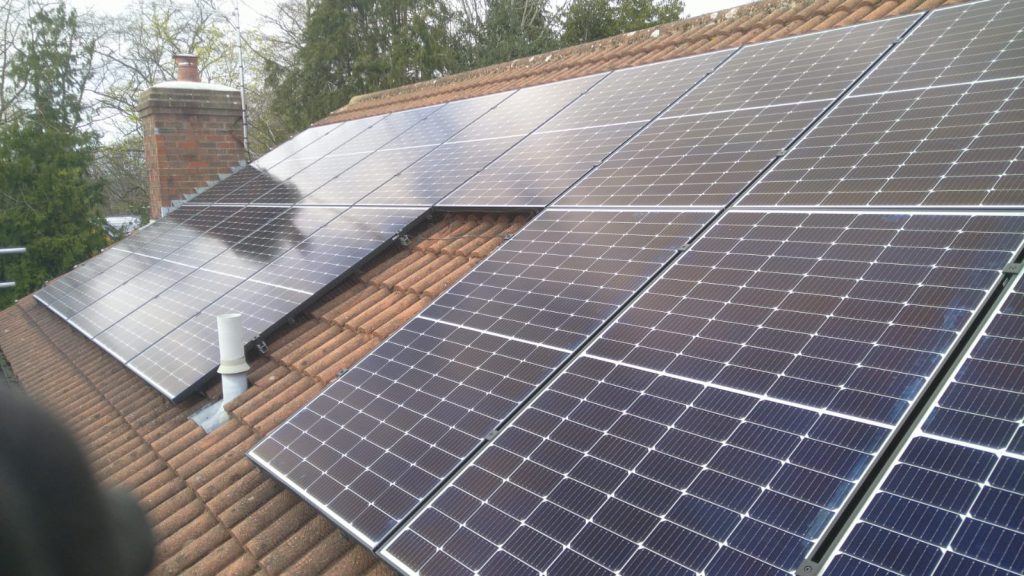
The Benefits of Solar Panels for Homeowners
Solar Panels are devices that convert sunlight into electricity, which you can use to power your home appliances, lighting, heating and cooling systems. By installing solar panels on your roof or in your garden, you can enjoy the following benefits:
- Cut your electricity bills: Solar panels can generate free power for your home for 25 years or more, saving you money on your energy bills every month. Depending on your solar PV system size, roof location, and your usage patterns, you could save up to £390 per year on average by installing a basic 8 panel solar PV system.
- Reduce your carbon footprint: Solar panels are a clean and green source of energy that do not emit any harmful greenhouse gases or pollutants. The average residential solar PV system in the UK saves between 1.2 and 1.6 tonnes of carbon dioxide from entering the atmosphere each year, which is equivalent to planting about 80 new trees in the UK.
- Receive payments for extra electricity you generate: If you produce more electricity than you need, you can sell it back to the National Grid or to a third-party supplier through the Smart Export Guarantee (SEG) scheme. This way, you can earn extra income from your solar panels and help balance the demand and supply of electricity in the UK.
- Increase your home value: Solar panels can make your home more attractive to potential buyers, as they indicate lower running costs and environmental awareness. According to a study by the website Zillow, homes with solar panels sell for 4.1% more on average than comparable homes without solar. As an example a £300,000 home plus 4.1% could sell for around £312,300, and an average solar PV system costs between £6,000 and £10,000, which is for a high-end system with solar battery storage included, so it pays for itself and that doesn’t even take into account the money you would save on your energy bills.

The Options for Financing Solar Panels
Solar Panels are not cheap to install, but they are a worthwhile investment that pays for itself very quickly. The cost of solar panels depends on various factors, such as the solar PV system size, quality, installation fees, and incentives available. The average cost of a 4kW solar PV system in the UK is between £7,000 – £10,000 (NXTGEN Energy prices start at just £8,500 for a 4kW system and that includes battery storage), but it can vary depending on your location and installer. Our Tip: Always choose a MCS Certified Installer like NXTGEN Energy for your solar PV installation, otherwise you cannot claim the Smart Export Guarantee (SEG) payments, as you are required to have a MCS Certificate to prove your solar PV system is installed correctly and to the high standards as required by MCS certification. NXTGEN Energy is an MCS Certified installer.
Fortunately, there are several options for financing solar panels that can make them more affordable and accessible for homeowners. These include:
- Pay-As-You-Go (PAYG): This is a popular option for homeowners who cannot afford or qualify for traditional financing due to credit issues or limited income. With Pay-As-You-Go (PAYG), you do not pay anything upfront for your solar PV system, but instead you pay a monthly fee to a third-party company that owns and maintains it. You also pay a reduced rate for the electricity you use from the solar PV system. This way, you can enjoy the benefits of solar power without any upfront costs or risks.
- Green mortgages: These are special mortgage products, like Nationwide’s 0% Green Additional Borrowing Mortgage and the Greener Home Reward from Barclays that focus on renewable energy sources like solar power. They may offer incentives such as cash back or a lower interest rate than standard mortgages. Some lenders may also lend you more money if you install solar panels on your home, as they recognise the potential savings and value they bring. However, not all lenders offer green mortgages, so you may need to shop around to find the best green mortgage deal.
- Personal loans: These are loans that you can use for any purpose, including installing solar panels on your home. You can borrow money from a bank, a credit union, or an online lender, and repay it over a fixed period with interest. Personal loans may have lower interest rates than credit cards or other forms of debt, but they may also require a good credit score and income to qualify.
- Flexible finance options: NXTGEN Energy has partnered with Ideal4Finance to offer a range of finance options to our customers. See all our current finance offers on our Solar Panel Financing page.

The Considerations and Challenges of Solar Panels & Mortgages
While Solar Panels offer many benefits for homeowners, they also come with some considerations and challenges that may affect your mortgage terms or your property value. Here are some of the key factors you need to keep in mind:
- Property value: Installing solar panels on your home will normally increase its value, but it may also make it harder to sell or refinance in some rare cases. Some buyers may not like the look of solar panels or may prefer a different type of solar PV system. Some banks or lenders may also be wary of lending money for a home with solar panels, as they may have concerns about the system’s stability, performance, or maintenance over time in very rare cases.
- Home improvements: Installing solar panels may require additional home improvements or modifications that could impact your home’s appraised value and affect your mortgage terms. For example, in rare cases you may need to upgrade your roof structure, wiring, or insulation to accommodate the solar PV system. You may also need to obtain planning permission or comply with building regulations before installing solar panels, depending on your location and property type, for example if the solar panels can be seen from a public highway, you live in a conservation area or if you own a Grade II Listed Building.
- Energy savings: Most lenders will require proof of energy savings from a solar PV system before approving any loans related to it. This means that you will need to provide evidence of how much electricity you generate and use from your solar panels, and how much money you save or earn from them through the SEG scheme. You may also need to have an energy performance certificate (EPC) for your home, which rates its energy efficiency and environmental impact.

Conclusion
Solar Panels are a great way for you to save money on your energy bills that you can then use to offset your mortgage bills, and you are also saving the planet, but they also have implications for your mortgage and your property value. Before installing solar panels on your home, you should do your research and compare different financing options, benefits, and challenges. With the proper preparation and information, you can take advantage of the many opportunities solar panels offer without compromising your mortgage terms or your property value.
Are you considering getting Solar Panels?
If you are a UK homeowner considering installing solar panels, get in touch with us today! The solar energy experts here at NXTGEN Energy will be more than happy to help you on your Solar journey. We are also able to discuss alternative types of green energy products, just in case a solar PV system isn’t suitable for your home! Call us on 01268 928 690 or simply click ‘Learn More’ below to fill out our short form, to get connected to a Solar Energy Expert.
Frequently Asked Questions about Solar Panels and Mortgages
You might also be interested in…
- Solar Panels: Pros, Cons, and Whether They’re Worth ItSolar panels can cut your energy bills by up to 70%, and surplus electricity can be sold back to the National Grid through the Smart Export Guarantee (SEG) Scheme. They reduce your carbon footprint, require minimal maintenance, and can last over 30 years, making them a long-term eco-friendly investment. Upfront costs are… Read more: Solar Panels: Pros, Cons, and Whether They’re Worth It
- UK Schools and Hospitals to Receive £180 Million Solar InvestmentSolar Investment: The UK government, through Great British Energy, is investing £180 million to install solar panels on 200 schools and 200 hospitals as part of its net-zero carbon strategy. Benefits: This initiative aims to cut energy costs, reduce carbon emissions, and enhance energy security by reducing reliance on imported fossil fuels. … Read more: UK Schools and Hospitals to Receive £180 Million Solar Investment
- Understanding Solar Panel EfficiencySolar panels convert sunlight to electricity through photovoltaic cells, storing extra energy for later use. There are three main types of solar panels: monocrystalline, polycrystalline, and thin-film. Monocrystalline panels lead in efficiency (20%+), but new technologies are improving performance continuously. Solar panels save money, boost property value & reduce environmental impact,… Read more: Understanding Solar Panel Efficiency
- How SolaSkirt Can Protect Your Solar PanelsPigeon Issues: Pigeons under solar panels damage cables, leave guano, spread disease & create noise. SolaSkirt Fix: Aluminium barrier that blocks pigeons, enhances panel look, and installs without damage. Top Benefits: Durable, weatherproof, maintenance-free, and improves aesthetics & efficiency of panels. Cost-Saving: An affordable pigeon proofing solution that prevents expensive future… Read more: How SolaSkirt Can Protect Your Solar Panels
- Are Brits Turning Their Backs on Solar Panels?High upfront costs: Deter many Brits from installing solar panels despite falling prices & financing options. Myths debunked: Solar panels work in cloudy weather, need minimal maintenance & can last 25–30 years. Financial & Environmental benefits: Solar panels cut electricity bills by up to 70% & lower carbon footprints. Government support… Read more: Are Brits Turning Their Backs on Solar Panels?
- Choosing the Best Solar Panel System InstallerChoose MCS certified installers with Solar PV and Battery Storage Certificates for quality & incentives. Pick local installers familiar with Essex, Kent, and London’s weather and building regulations. Look for full-service solar installers from consultation to maintenance with MCS certification. NXTGEN Energy offers tailored solar panel systems for homeowners in Essex,… Read more: Choosing the Best Solar Panel System Installer
- Solar Panel System Maintenance in the UKRegular Maintenance: Ensures optimal performance, maximizes energy efficiency & prevents costly repairs. Common Issues in the UK: Dirt, debris, bird droppings & ice build-up require regular cleaning & inspections. Best Practices: Clean panels with soft cloth & water, monitor performance & schedule maintenance visits. Seasonal Tips: Spring cleaning, summer heat protection,… Read more: Solar Panel System Maintenance in the UK
- Are solar panels worth it? NXTGEN Energy’s guide to getting startedInstalling solar panels can significantly reduce electricity bills, with prices dropping in recent years. Solar panels are a good investment for those with the space, daytime electricity usage & a south-facing roof. Consider financing options carefully, as borrowing can be expensive; paying outright provides better returns. Solar batteries store energy for… Read more: Are solar panels worth it? NXTGEN Energy’s guide to getting started
- How Amazon is Preparing for the Energy Needs of the FutureAmazon has over 600 renewable energy projects globally, with 230+ in Europe. These efforts support Amazon’s goal of net-zero carbon emissions by 2040. Amazon remains the top global and European corporate renewable energy buyer for the fifth year. Key achievements include 46 new projects in Europe, doubling Japan’s capacity & 53 projects in India. Discover… Read more: How Amazon is Preparing for the Energy Needs of the Future
- How Solar Panels Are InstalledWhat you can expect from a solar panel installation Solar panel installations typically take about a day to complete, depending on the complexity of the system. Solar panel installations require scaffolding, fixing brackets, wiring, inverter & interconnection to the grid. Solar panel installations need to be done by MCS Certified installers, who… Read more: How Solar Panels Are Installed
- How Solar Panels Increase Property ValueSolar panels can boost your home’s value by an average of £2,000 & command a price premium of 0.9% to 2%. Homes with solar panels have better EPC ratings, which can increase property value by up to 14%. Eco-friendly homes are in high demand, making solar-powered homes more attractive to buyers. … Read more: How Solar Panels Increase Property Value
- Did You Know That Solar Costs Have Fallen by 82%?Solar panel costs have dropped by 82% since 2010, making solar energy more accessible for UK homeowners. Factors to consider before switching to solar include initial investment, energy savings, and roof suitability. Government incentives, such as the Smart Export Guarantee (SEG) scheme, can help offset the initial costs. NxtGen Energy offers… Read more: Did You Know That Solar Costs Have Fallen by 82%?


 Why You Should Consider Solar Pa...
Why You Should Consider Solar Pa...



